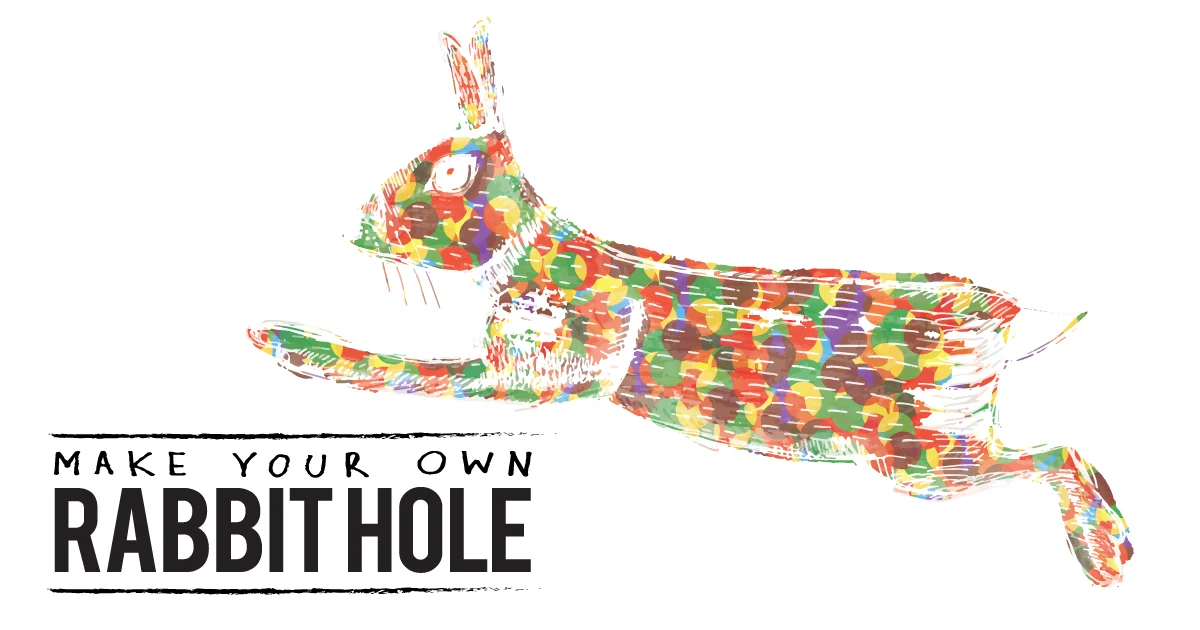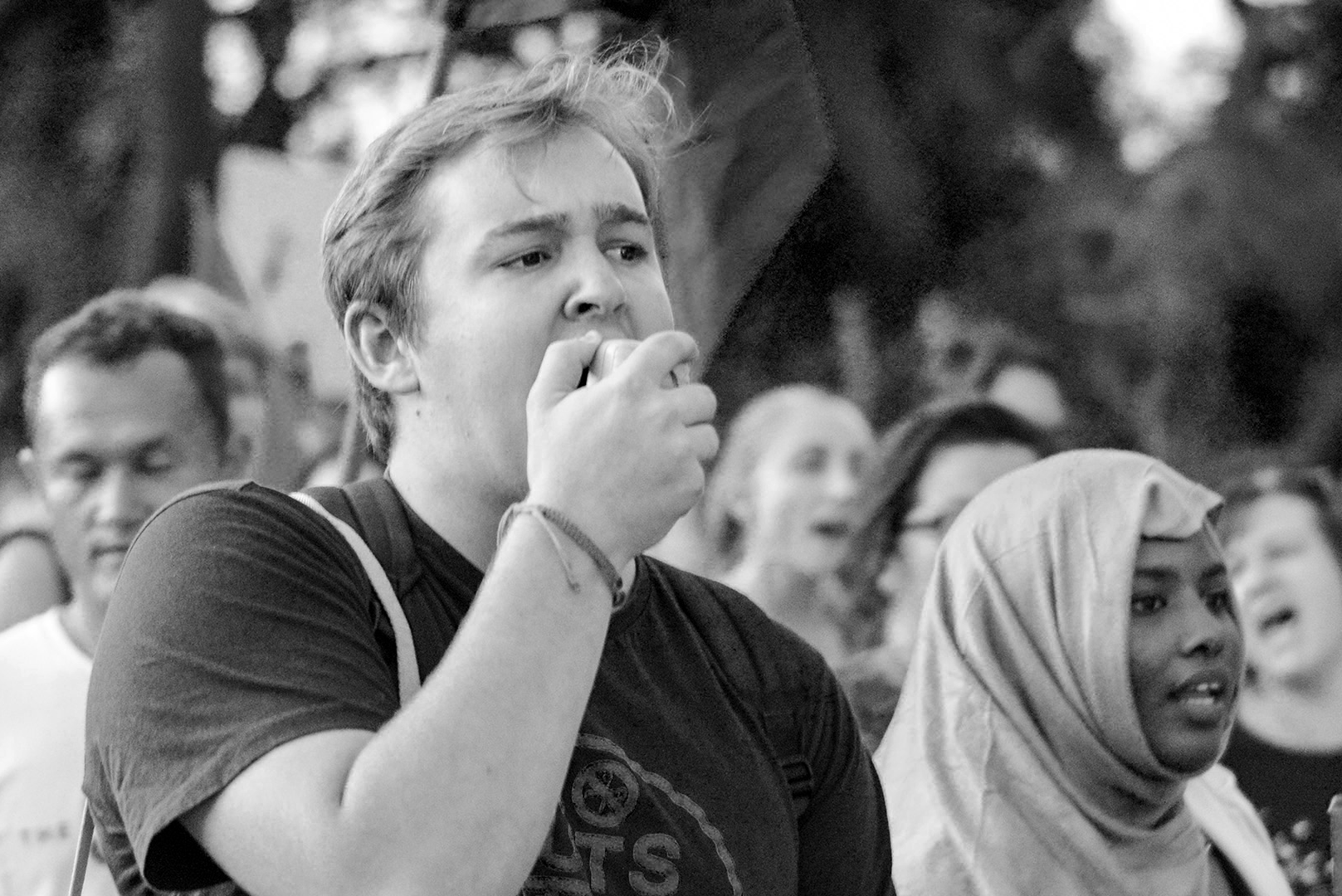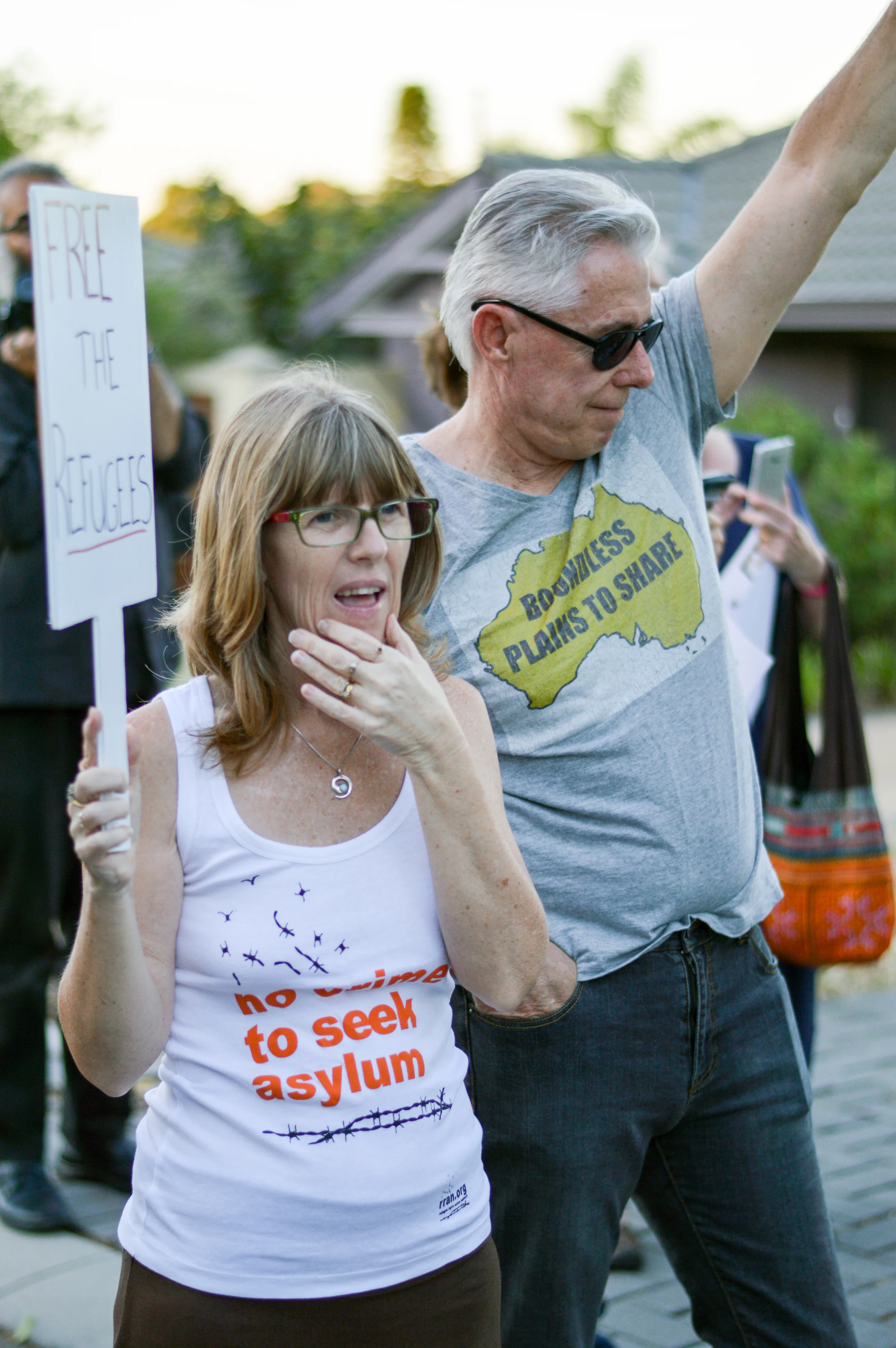Are we ‘The Lucky Country’, or just selfish and mean?: Let Them Stay
/Words, Photos and Cover Illustration by Ant Gray
This week, thousands attended rallies around Australia to protest against Australia’s policy of offshore detention, and to call on the Government to allow 267 men, women and children, destined to be sent back to Nauru, to stay.
Standing among a large gathering of thousands of people, comedian and columnist for The Guardian Corrine Grant wondered why so few people had come. Grant was at Melbourne’s ‘Let Them Stay’ rally—one of many held across the country last week, protesting the Australian Government’s policy of offshore immigration detention, and the return of 267 people to Nauru, including 91 children.
As she stood among six thousand people, she thought about her nephew who had just finished his first day of school. He’d been so excited about his teacher giving everyone in his class a bag of lollies. She thought about how his mum had packed his lunch with a note that read ‘I love you.’
Then her mind drifted. “I tried to imagine my nephew locked up in Nauru,” she wrote. “I tried to imagine him frightened and miserable, watching as the adults around him self harmed and tried to kill themselves.”
She looked around at six thousand people and wondered where everyone was. “This city has a population of over four million,” she said. “Why weren’t there hundreds of thousands out on the street?”
In Perth on the same day, I was at a ‘Stand For Sanctuary’ vigil at St. George’s Cathedral, along with 1500 others. It was fantastic event, but I too looked around and had a pang of doubt. It was a lot of people for sure, but not an overwhelming turnout. Then I had a terrible series of thoughts.
#StandForSanctuary, St George’s Cathedral, PERTH
Where is everyone? Don’t people care? Or is it that more Australians are interested in booing Adam Goodes than are willing to boo child abuse?
I instantly felt ill and a little ashamed for thinking this. And the experience of reading Grant’s piece in The Guardian the next day was just as bleak and sobering. At the end she writes:
“We turn a blind eye to the atrocities we are inflicting on innocent people – the murders, the rapes, the denial of proper medical and psychological care and the child abuse – because we are selfish.
We are willing to do all these terrible things to a handful of people because we believe it will mean we can keep all the services and privileges we now enjoy to ourselves. I have not lost hope that we can save these people, but I have lost hope in my country.”
I understand her pessimism. Although it’s heartening to hear that a Brisbane children’s hospital has refused to discharge a baby due to be returned to Nauru, and that nearly all our State Premiers have offered to provide housing and support to asylum seeker children, I’m troubled by a few questions.
What does the rest of the country think? Where are we on this?
Do what I do, not what I say
It’s been eight years since Prime Minister Kevin Rudd said ‘sorry’ to The Stolen Generations. Eight years and five Prime Ministers—two of them Rudd himself.
His ‘sorry’ speech was amazing. It was a vital turning point in our history—an important first step, as he said, “to remove a great stain from the nation’s soul”. But Prime Minister Rudd was also the architect of a policy not to resettle asylum seekers in this country—a legacy of the preceding Howard Government.
#LetThemStay Perth Immigration Detention Centre, Feb 4 2016
Bi-partisan cooperation between Australia’s two major parties on these terrible policies is heartbreaking, especially Labor’s part in it. According to a 2013 poll conducted by the ABC:
“48 per cent of Labor supporters disagree with the statement that asylum seekers who arrive by boat should not be allowed to settle in Australia, while 40 per cent of Labor voters agree with the party’s policy.”
Four years after Rudd’s speech about The Stolen Generations, Prime Minister Julia Gillard delivered a national apology to victims of forced adoption practices, dating back from the 1950s through to the 70s. Her speech atoned for a series of Government failures to look after the wellbeing of both children and their parents—for a “lifelong legacy of pain and suffering.”
Delivered in 2013 on the March 21, few people heard the speech and not many news outlets had space to report it. It was the same day as the leadership spill that saw Prime Minister Rudd returned to office.
And so another curtain was quietly drawn on a terrible period in our history, with no feeling of resolution.
#LetThemStay Perth Immigration Detention Centre
Then, when Prime Minister Tony Abbott took office, things got uglier. Way uglier. There were allegations that the Australian Government had paid people smugglers to return to Indonesia with their human cargoes, and the threat of prosecution to any detention centre staff who spoke out about conditions in the camps. The Australian Human Rights Commission also delivered its “The Forgotten Children” report. The report described the many failures of Australia’s offshore detention strategy, including numerous cases involving child assault, sexual assault and self-harm. It was immediately decried, ignored and was the subject of grotesque contortions of logic—that the policy reduced the number of children in detention (it didn’t), that it was compassionate (it wasn’t), and that the commission should be ashamed of itself for being “blatantly partisan” (even though it was critical of the policies of both parties).
At the time, future Prime Minister Malcolm Turnbull was a lone voice of dissent:
“The bottom line is this: one child in detention is one child too many. Everyone is anguished by having children locked up in detention.”
But as yet, Prime Minister Turnbull has done nothing to end the policy, with many commenting that this might be due to large-scale support in this country for its continuation.
It’s as if we’ve learned nothing from The Stolen Generations, the forced adoptions, the ‘Royal Commission into Institutional Responses to Child Sexual Abuse’. Like Hannah Arendt, the political theorist who wrote on the ‘banality of evil’ during the trial of Adolf Eichmann, warned us:
“When all are guilty, no one is; confessions of collective guilt are the best possible safeguard against the discovery of culprits, and the very magnitude of the crime the best excuse for doing nothing.”
Which is precisely what will happen if we let this moment pass behind the shroud of history. This abuse is happening right now. Saying sorry later will be an inevitable and important gesture for future generations, but will we, this generation, be able to live with ourselves?
Land of hope or despair?
It does awful damage to our society when we excuse the mistreatment of children. The Anglican Parish of Gosford said it best, posting a message outside its church that read:
“If the protecting of our borders requires the incarceration of babies, the sexual abuse of children, the rape of women and the murder of men, then we are of all nations the most depraved.”
#LetThemStay Perth Immigration Detention Centre
Not only are successive Government immigration policies cruel, inhumane and possibly illegal, right now I feel we’re fighting for our nation’s soul.
Do we really want child abuse to be part of our national story? It was hard enough to own up to our treatment of Aboriginal and Torres Strait Islander peoples, adoptees and their parents. Do we really want to add more child abuse to this country’s CV?
I think if we as a nation want to claim the sacrifices at Gallipoli as our own, then we should be prepared to make some sacrifices too. If we want to align ourselves with the heroes of the Kokoda Trail, then let’s be heroes to those who have suffered the same hardships or worse getting here by boat.
If we want to say that being Australian is about mateship, then let’s be mates; and if we want to say that Australia is a place where people get a fair-go, then let’s give people one and not just say it.
#StandForSanctuary, St George’s Cathedral, Perth
They say 70% of Australians support offshore detention, but I don’t think that’s necessarily true—at least I hope not. If you asked people whether they think refugees should live in filth, in fear of violence, in a hell-hole that costs tax payers over one billion a year, that number would shrink. And if you asked people if they thought a child, who had allegedly been raped while in detention, should be put back in the very same place where he had been assaulted, potentially to be a victim of the same person again, that support would be gone entirely.
“This is a demeaning debate,” said Former Australian Prime Minister Malcolm Fraser who passed away last year. “It’s a miserable one.”
“It also shows that the politicians who participated in this debate have contempt for all of us, for the majority of the Australian people. They believe that despite all the evidence to the contrary, that if they appeal to the fearful and mean sides of our nature, they will win support.”
Accountability is deeper than responsibility
I was struck too, this week, by a photo I saw from the Sydney ‘Let Them Stay’ rally of a woman holding a sign that reads:
#LetThemStay Rally Sydney, Feb 9 2016. Image: Siobhan Marren
“I can’t believe we even need to protest the torture of kids”
Digging around on Facebook, I found the person who took the photo: photographer, lawyer, activist and philosopher, Siobhan Marren. After asking for permission to use the image, I was curious what she thought about the protests, Corinne Grant’s piece, and whether she too suffered bouts of pessimism.
“Corrine has no reason to lose faith in our country,” she said. “It’s important that people know that rallies matter. That they know that petitions matter. That they know that sharing a post on Facebook matters. But that they understand that our responsibility doesn’t end there.”
#StandForSanctuary, St George’s Cathedral, Perth
“What matters too is how we vote,” she said. “The only thing that is actually going to change refugee politics in Australia is a change in government.”
“Corinne fails to separate responsibility and accountability. We are accountable to other human beings—it is a fundamental aspect of a coherent society. And that accountability is deeper than responsibility. We can assuage our sense of responsibility by attending a rally, but our accountability doesn’t end there—it never ends.”
“That is where hope comes in,” she says. “I know that there will always be people who go beyond rallies and petitions and who just don’t stop: and that is what we need.”
I agree, but what I like about Corrine Grant’s piece is that it calls into question our national self-image. Are we lucky and generous, or lucky and selfish?
Writing this feels like waving a red flag to all the trolls and haters and Aussie fundamentalists out there. But part of me thinks,
‘F*ck em! I’d rather wave a red flag than a white one.’
Ant
If you’re concerned about this issue too, Deputy CEO Kate Elizabeth from Welcome to Australia has some great suggestions on how you can get involved.
This is the third time I’ve written about this issue. Here’s parts one and two.
Many thanks to Siobhan Marren for sharing her thoughts and letting me use her 'I can't believe...' image. You can find more of her wonderful photos on her Flickr! page. All other images are mine and are free to use if you tag and credit as ‘Image(s): Ant Gray/Make Your Own Rabbit Hole.’ (Except ones with kids in. I asked permission, so please contact me first.)



















Painter Tracey Read talks about spending four weeks painting and drawing her way around Italy.